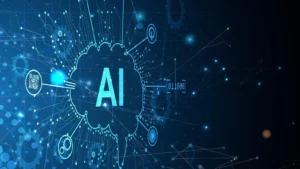Algorithms are becoming increasingly important in our daily lives. They are the backbone of many digital systems, from search engines and social media platforms to financial systems and transportation networks. Algorithms are a set of instructions that tell a computer or machine what to do in order to solve a problem or perform a task. The power of algorithms lies in their ability to process vast amounts of data quickly and accurately, enabling them to make predictions and decisions that would be impossible for humans to do on their own.
One of the most well-known uses of algorithms is in search engines. When you enter a search term into Google, for example, the algorithm goes to work, sorting through billions of web pages to find the most relevant results. The algorithm takes into account a wide range of factors, including the words on the page, the links pointing to the page, and the user’s search history. It then uses this information to rank the results in order of relevance, displaying the most relevant results at the top of the page.
Algorithms are also increasingly being used in the field of artificial intelligence (AI). AI systems use algorithms to learn from data and make predictions about the future. For example, an AI system might be trained on a dataset of thousands of images of cats and dogs. The algorithm would analyze each image and learn to distinguish between the two types of animals. Once it had been trained on this dataset, it could then be used to classify new images that it had never seen before, accurately identifying whether each new image was a cat or a dog.
Another area where algorithms are changing the way we think is in the field of finance. Algorithmic trading has become increasingly popular in recent years, with traders using algorithms to make decisions about when to buy and sell stocks. These algorithms are able to process vast amounts of financial data quickly and accurately, making decisions based on a wide range of factors, including market trends, company performance, and news events.
The power of algorithms is not without its drawbacks, however. One of the biggest concerns is that algorithms can perpetuate bias and discrimination. For example, if an algorithm is trained on data that contains biased information, it may make biased decisions when presented with new data. This can lead to discrimination in areas such as hiring, lending, and insurance.
Another concern is that algorithms can be opaque and difficult to understand. In some cases, the algorithms that are used to make important decisions are proprietary, meaning that their inner workings are not available for public scrutiny. This can lead to a lack of transparency and accountability, making it difficult to challenge decisions that are made by algorithms.
Despite these concerns, the power of algorithms is undeniable. They are transforming the way we think and making it possible to process vast amounts of data quickly and accurately. As the use of algorithms continues to grow, it will be important to ensure that they are used ethically and responsibly, and that they are transparent and accountable.
In conclusion, algorithms are changing the way we think and transforming many aspects of our daily lives. From search engines to AI systems to finance, algorithms are being used to process vast amounts of data and make predictions and decisions that were once impossible. While there are concerns about the potential for bias and lack of transparency, the power of algorithms is undeniable, and they will continue to shape the future of our digital world.







Be First to Comment